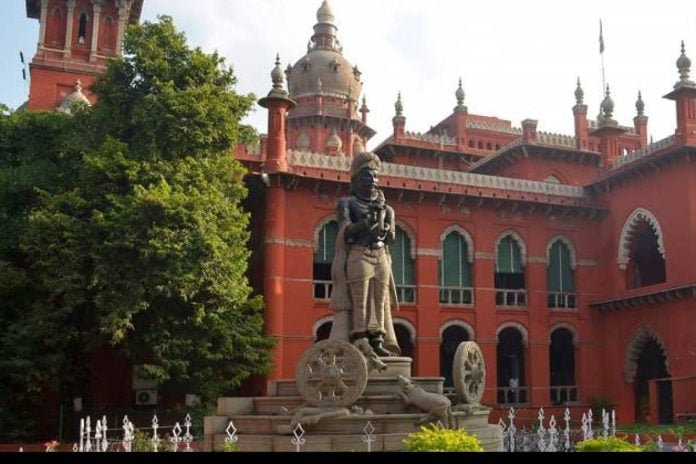The Madras High Court has observed that the Judge performing a judicial function, performs a sovereign act. He cannot be directed under the administrative circulars to adopt a particular working methodology.
The Division Bench of Chief Justice Sanjay V.Gangapurwala and Justice P.D. Audikesavalu heard a Petition filed by V.Vargees Amal Raja seeking directions against the Registrar General of this Court to deliberate on the requirements under Rule 16 of the Civil Rules of Practice and the contemplations in the case law reported in 2013(1) CTC 926 (Umayal vs. Muthu) and to appropriately direct the Registries of the High Court and Civil Courts of the State of Tamil Nadu and Union Territory of Puducherry, to make it mandatory, splitting the numbering of suits into two stages:
(i) permission to represent them;
(ii) finalise the cause title and to include and mark the deed of power of attorney.
P.T.Perumal , counsel for the petitioner submits that the Trial Courts are not adhering to Rules 16 and 17 of the Civil Rules of Practice so also Order III Rule 2 of the Code of Civil Procedure. If the suit is filed through a power of attorney, a procedure is required to be adhered to. The said procedure is not followed. In view of that, directions be given to the Registrar General to issue directions to the Registries, to follow the same.
“The Civil Rules of Practice are in place. The Code of Civil Procedure also lays down the procedure to be adhered to. The judicial order as referred to by the learned counsel also holds the field. When the judicial order holds the field, there cannot be any further administrative circulars or instructions. The learned Judge performing a judicial function, performs a sovereign act. He cannot be directed under the administrative circulars to adopt a particular working methodology. The Registry and the Judicial Officers are certainly required to follow and adhere to the Civil Rules of Practice and the provisions of the Code of Civil Procedure at the time of registration of the suits and further trial. When the rules are in place, there is no requirement of further administrative circulars or instructions. If in a particular case, the procedure is not adhered to, or according to the aggrieved party, some injustice is caused, he has got right for redressal of the same before the appropriate authority/forum”, the Bench observed while disposing the matter.


